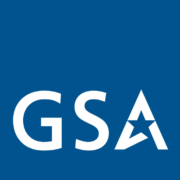IT 70 Schedule
GRSi is a contract holder on the following IT Services:
54151HEALTH - Health Information Technology Services
Includes a wide range of Health IT services to include connected health, electronic health records, health information exchanges, health analytics, personal health information management, innovative Health IT solutions, health informatics, emerging Health IT research, and other Health IT services. NOTE: Subject to Cooperative Purchasing
54151S - Information Technology Professional Services
IT Professional Services and/or labor categories for database planning and design; systems analysis, integration, and design; programming, conversion and implementation support; network services, data/records management, and testing. NOTE: Subject to Cooperative Purchasing
Order-Level Materials (OLM)
00CORP Schedule
GRSi’s Areas of Performance Include:
871-1 - Strategic Planning for Technology Programs/Activities
Services required under this SIN involve the definition and interpretation of high-level organizational engineering performance requirements such as projects, systems, missions, etc., and the objectives and approaches to their achievement. Typical associated tasks include, but are not limited to, an analysis of mission, program goals and objectives, requirements analysis, organizational performance assessment, special studies and analysis, training, and consulting.
871-2 - Concept Development and Requirements Analysis
Services required under this SIN involve abstract or concept studies and analysis, requirements definition, preliminary planning, the evaluation of alternative technical approaches and associated costs for the development or enhancement of high-level general performance specifications of a system, project, mission, or activity. Typical associated tasks include, but are not limited to, requirements analysis, cost/cost-performance trade-off analysis, feasibility analysis, regulatory compliance support, technology/system conceptual designs, training, and consulting.
871-3 - System Design, Engineering and Integration
871-4 - Test and Evaluation
Services required under this SIN involve the application of various techniques demonstrating that a prototype system (subsystem, program, project or activity) performs in accordance with the objectives outlined in the original design. Typical associated tasks include, but are not limited to, testing of a prototype and first article(s) testing, environmental testing, independent verification and validation, reverse engineering, simulation and modeling (to test the feasibility of a concept), system, quality assurance, physical testing of the product system, training, and consulting.
871-5 - Integrated Logistics Support
Services required under this SIN involve the analysis, planning and detailed design of all engineering specific logistics support including material goods, personnel, and operational maintenance and repair of systems throughout their lifecycles, excluding those systems associated with real property. Typical associated tasks include, but are not limited to, ergonomic/human performance analysis, feasibility analysis, logistics planning, requirements determination, policy standards/procedures development, long-term reliability and maintainability, training, and consulting.
871-6 - Acquisition and Life Cycle Management
Services required under this SIN involve all of the planning, budgetary, contract, and systems/program management functions required to procure and or/produce, render operational and provide life cycle support (maintenance, repair, supplies, engineering specific logistics) to (technology-based) systems, activities, subsystems, projects, etc. Typical associated tasks include, but are not limited to, operation and maintenance, program/project management, technology transfer/insertion, training, and consulting. Example: During this stage, the actual manufacturing, launch, and performance monitoring of the navigation satellite will be assisted through project management, configuration management, reliability analysis, engineering retrofit improvements and similar functions.
871-7 - Construction Management and Engineering Consulting Services Related to Real Property


